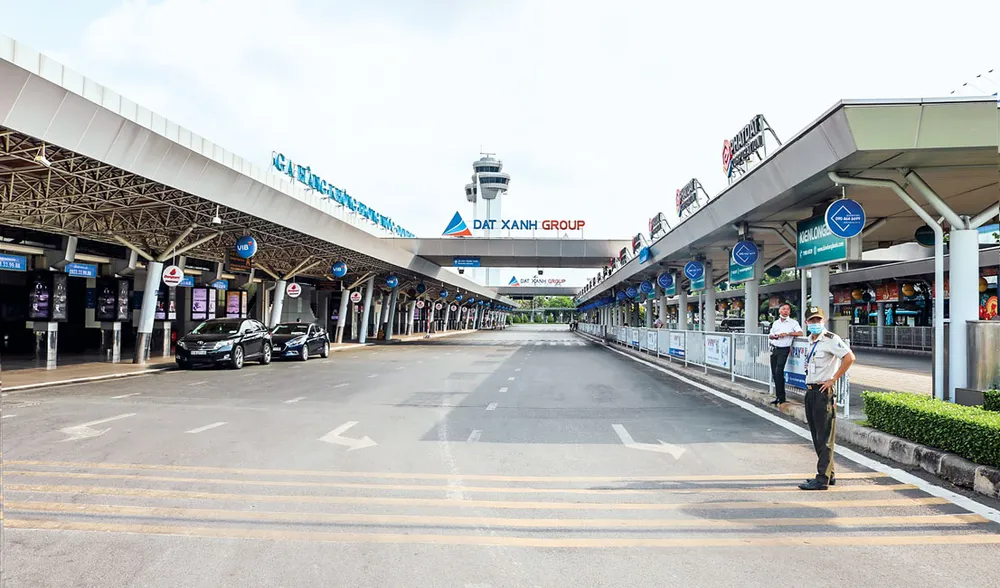
The one industry that has been the most seriously affected is the travel and aviation sector, with near zero demand after countries across the globe that have closed their borders to international travelers and even restricted travel within their national territories. People too are afraid to step out of their homes in the current scenario and are avoiding any risk factors. According to the Vietnam Airport Corporation (ACV), the total drop in number of air passengers may exceed 40% this year.
Even after the pandemic is brought under control, it will still take more than six months for the travel industry to revive to normalcy again and imbibe a sense of confidence among travelers. This is the average time frame that the aviation industry expects in recovery in the aftermath of Covid-19, as has been seen in earlier similar case scenarios in the past. However, in the likelihood of a longer lasting phase of closure due to inability to contain the spread of the Covid-19 pandemic, the cash flow for airlines will be under severe strain, as most of the airlines will be unable to function under pressures caused by shortage of funds, and large-scale bankruptcies are more likely to occur.
In the case of the oil and gas enterprises that are divided into three groups, namely, the upstream enterprises, the middlestream enterprises and the downstream enterprises, the Covid-19 pandemic has greatly affected both supply and demand. For the upstream businesses, short-term business activities will be less affected by yet to be completed contracts. Although, if the pandemic prolongs for too long, there will still be a risk that these projects could be further delayed. In the long term, low oil prices will prove risky for businesses, as low demand for project development will lead to a decline in exploration demand. For middlestream businesses, such as transportation and processing, factories or households are now reducing their demand due to a slowdown in projects. Meanwhile, processing in refineries has seen a sudden drop in oil prices and a slowdown in demand for petroleum products, which all has greatly affected profits. For downstream businesses, which involve distribution, reduced gasoline demand and high inventory prices are becoming a serious problem.
Concerns within the textile industry are increasing by the day as demand in its two main markets of Europe and the USA are plummeting. The outlook is not very positive either, due to complications being created at various phases due to the Covid-19 pandemic. According to Rong Viet Securities Company (VDSC), when the pandemic finally ends, the demand will not increase much as consumers will remain cautious about spending money on luxuries such as clothes. People at that time will be quite out of pocket. The garment factories in China will be affected by the supply chain to many countries, and garment orders have seen several cancellations in the first quarter already. The Vietnamese enterprises will also bear the brunt as yarn or fabric will not be available if many Chinese suppliers go bankrupt.
The Insurance sector will also see a sharp fall and areas of aviation insurance, tourism and motor vehicle sales will see a weak response. From the beginning of March until the pandemic finally peaks, insurance advisory activities, especially for life insurance, will be difficult to implement because of social distancing orders of the government and also the current mandatory requirement for the general public. Investment profits will clearly see a drastic fall with more drop in stock prices and deposit rates.
The stock market is also responding negatively in the present Covid-19 scenario with securities companies facing many difficulties. The margin lending rate in the industry has plummeted sharply due to a difficult market and tough competition. Meanwhile, proprietary trading was also affected as the overall market dropped sharply. In addition, the activities of the Initial Public Offering (IPO), additional issuance and bond issuance have been interrupted by the Covid-19 pandemic, thus also affecting the revenue of securities companies.
Domestic consumer demand has decreased as people are applying austerity measures in these very anxious times. In particular, the demand for general circulation of goods is reduced when there is difficulty in ensuring input as well as output material for exports, which also affects domestic production. In the real estate segment, the impact in the short term will not be significant, as only some opening sales events at the beginning of the year were cancelled.
During the Covid-19 pandemic, the construction of infrastructure or the handover of industrial parks has been severely affected. There has been a decline in the number of foreign investment enterprises (FDI) in the first three months. The reason is that due to the widespread fear of the Covid-19 pandemic in countries with large FDI flows such as South Korea, China, Japan, the USA and the EU, a slowdown has occurred and only when the pandemic ends will businesses operating in industrial real estate review and revive operations once again.




















